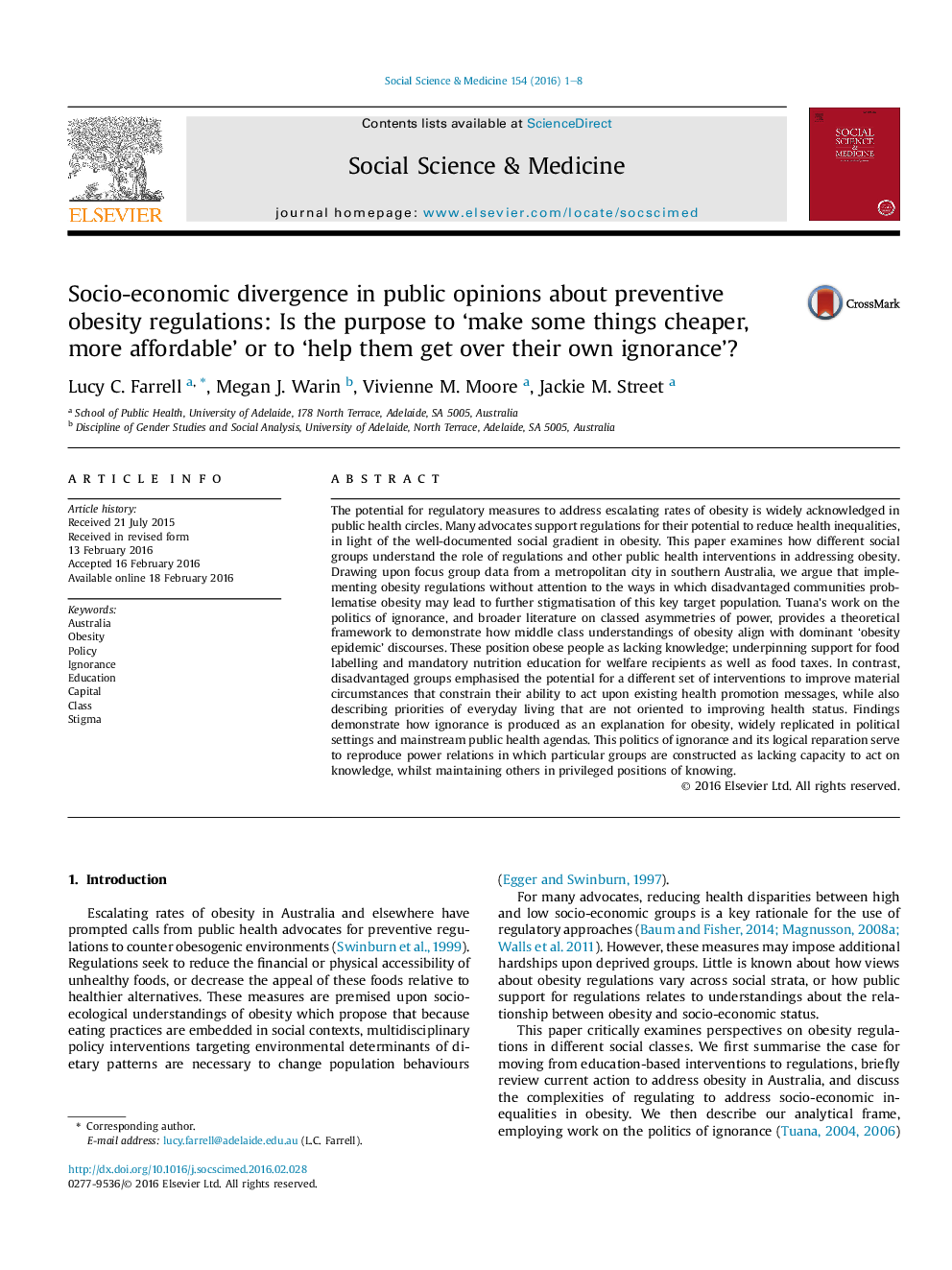| کد مقاله | کد نشریه | سال انتشار | مقاله انگلیسی | نسخه تمام متن |
|---|---|---|---|---|
| 952214 | 1476015 | 2016 | 8 صفحه PDF | دانلود رایگان |
• Public views about preventive obesity regulations differ between social classes.
• Support for obesity regulations is often based on ability of regulations to educate.
• Tuana's ‘wilful ignorance’ illuminates advantaged groups' views.
• Material circumstances of deprivation are ignored in many regulatory approaches.
• Policy should attend to disadvantaged groups' experiences and material constraints.
The potential for regulatory measures to address escalating rates of obesity is widely acknowledged in public health circles. Many advocates support regulations for their potential to reduce health inequalities, in light of the well-documented social gradient in obesity. This paper examines how different social groups understand the role of regulations and other public health interventions in addressing obesity. Drawing upon focus group data from a metropolitan city in southern Australia, we argue that implementing obesity regulations without attention to the ways in which disadvantaged communities problematise obesity may lead to further stigmatisation of this key target population. Tuana's work on the politics of ignorance, and broader literature on classed asymmetries of power, provides a theoretical framework to demonstrate how middle class understandings of obesity align with dominant ‘obesity epidemic’ discourses. These position obese people as lacking knowledge; underpinning support for food labelling and mandatory nutrition education for welfare recipients as well as food taxes. In contrast, disadvantaged groups emphasised the potential for a different set of interventions to improve material circumstances that constrain their ability to act upon existing health promotion messages, while also describing priorities of everyday living that are not oriented to improving health status. Findings demonstrate how ignorance is produced as an explanation for obesity, widely replicated in political settings and mainstream public health agendas. This politics of ignorance and its logical reparation serve to reproduce power relations in which particular groups are constructed as lacking capacity to act on knowledge, whilst maintaining others in privileged positions of knowing.
Journal: Social Science & Medicine - Volume 154, April 2016, Pages 1–8
